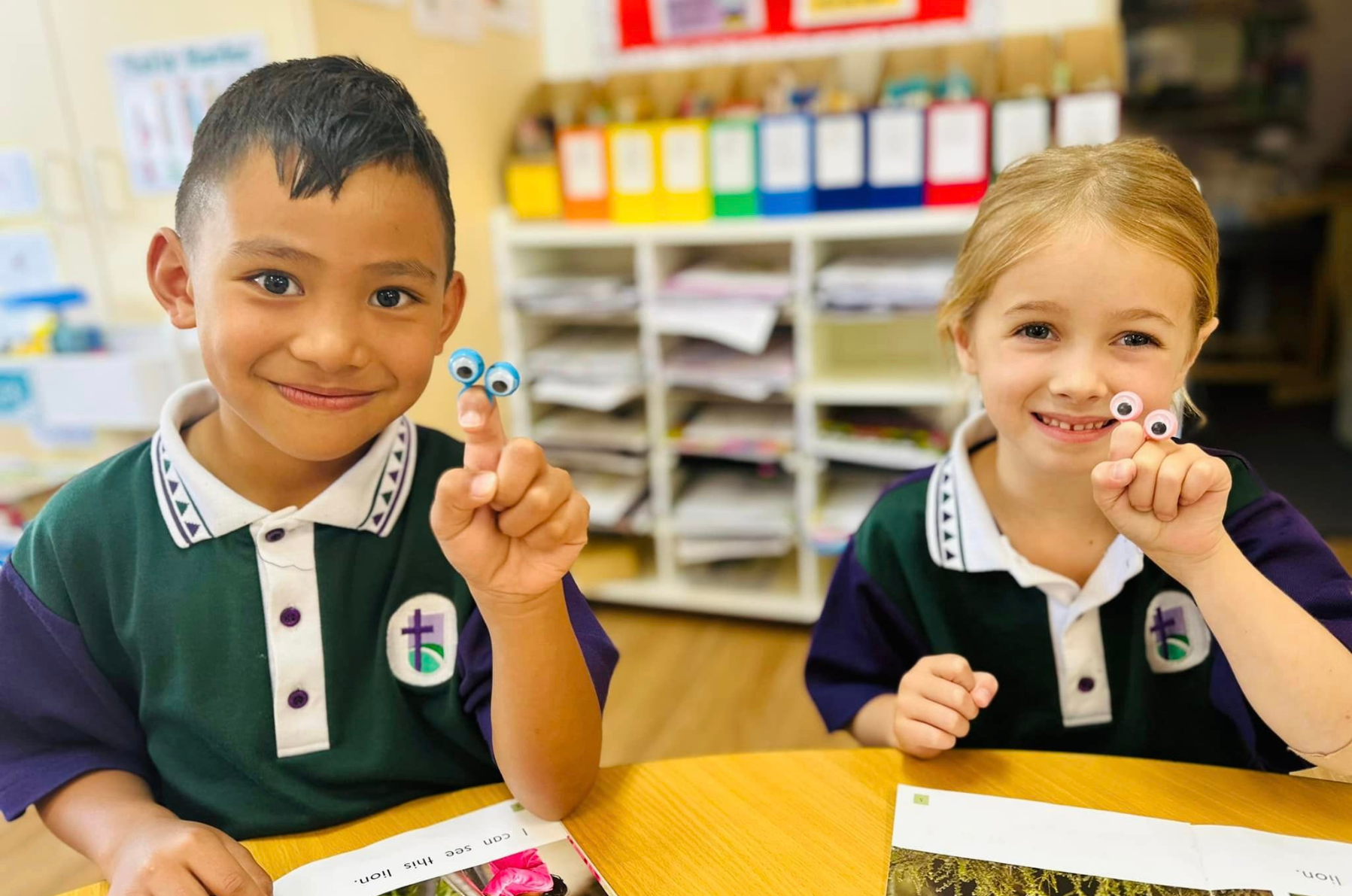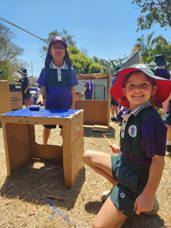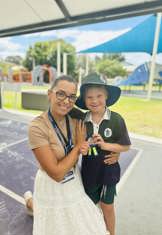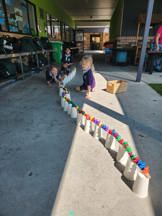Key Considerations before enrolling your child in Prep
26 October 2023

There is so much to consider when enrolling your child for prep. They are precious, tiny cargo and as a parent, our protective instincts are on super high alert with our decision making. Will they be looked after as you would like.. does the Prep tick the boxes YOU need ticked in order to make you and your child feel safe, and in good hands.
Well, with these things in mind, I had the privilege of sitting down with Mrs. Kim Winton, our Head of Junior School at Springwood, and Mrs. Sandra Arraiol, a dedicated Prep Teacher at Carbrook, to gather some valuable insights on the essential factors to contemplate when enrolling for Prep.


Based on their amazing intel, I have divided it into three sections to guide you in making the best choice for your child, addressing both the emotional, and practical aspects of your decision when considering your child's school readiness and the best school for them.
#1: PARENTS EMOTIONS, HOPES & DREAMS
There are three things parents hope and dream about and the first (and at the top of the list) is Happiness, plain and simple. Happiness is a huge part of general well-being and plays a huge role in a child’s readiness to learn.
Being happy is not just a feeling of joy or cheerfulness, but of fulfillment, comfort and safety. Happy children learn, which is why social and emotional development plays an important role in enabling children to think positively about school and make the most of the experience.
“The future belongs to the curious. The ones who are not afraid to try it, explore it, poke at it, question it and turn it inside out.” ANONYMOUS
Secondly, children are extremely Curious. From a teacher’s perspective, keeping curiosity alive is the first priority. Curiosity ignites the desire to explore and inquire into the world around us. Nurturing a child’s curiosity takes time and effort, and the best way for parents and teachers to encourage curiosity, is to stay curious themselves. As adults, we may feel completely underprepared for the questions our children ask. We may not know what stars are made of or why the sky is blue, but we have a powerful motivation to stay curious ourselves – so we can model for our children a love of life - long learning.
Showing that school and learning has value, sends a powerful message to children. This can be demonstrated by encouraging regular school attendance, engaging in home learning and conversations about school, being as involved as you can with school events. Prep Parents have a fantastic opportunity to instil healthy habits of loving school, and the fruit of this will be seen more as your children grow.


“Don’t prepare the path for the child, prepare the child for the path”. ANONYMOUS
And the third, is Resilience. Resilience is not about being happy all the time, but about a child’s ability to come through a difficult situation and bounce forward. Resilience is best encouraged through real- life situations. Some children are more naturally resilient than others, but the good news is resilience can be learned. It is influenced by experiences and relationships. Secure relationships at home and school, opportunities for risk taking, opportunities for conversation and encouraging problem solving, all develop resilience in our children. Remember, as parents, we will not always be around to save them or fix things for them. We rescue because it feels good, but the long term goal is for our children to learn to rescue themselves.
#2: IS YOUR BUNDLE OF JOY SCHOOL READY
Whilst the emotional journey is paramount, it is also important that we are realistic in our Essential Aspects of School readiness to consider:
Age Eligibility: Ensure that your child meets the age requirements for prep in Queensland. Children must be at least 4 years old by June 30 in the year they intend to start Prep.
Developmental Milestones: Assess your child's development in areas like language, cognitive skills, and emotional maturity. Prep typically involves more structured learning, so it's essential that your child has reached certain developmental milestones.
Social Skills: Consider your child's social readiness. Can they interact with peers, share, and follow basic social norms like taking turns and cooperating with others?
Independence: Encourage independence by helping your child with tasks like dressing, using the toilet, and feeding themselves. These skills will be valuable in a school environment.
Emotional Readiness: Ensure your child can handle separation from you without extreme anxiety. This is a critical factor for a smooth transition to school.
Fine Motor Skills: Fine motor skills, such as holding a pencil or scissors, are essential for school tasks like writing and crafting. Encourage activities that develop these skills.
Gross Motor Skills: Physical activities that develop gross motor skills, like running, jumping, and balancing, are important for physical development and can also improve your child's attention and focus in the classroom.

#3: AND MOST IMPORTANTLY.. 10 TOP TIPS FOR CHOOSING THE RIGHT SCHOOL FOR YOU!
There are many boxes to tick and as a parent, you will walk into most school tours or information sessions with a number of things you are looking for - whether consciously or sub consciously. This is what our gurus gave us as the top tips.
School Culture and Values: Research the school's culture and values to ensure they align with your family's beliefs and expectations. A school with a positive and inclusive culture can contribute to your child's overall well-being and educational experience.
Extracurricular Interests: Consider your child's interests and hobbies. Some schools offer extracurricular activities and programs that can enhance your child's learning experience and engage their passions.
Support Systems: Assess the availability of support systems, both at home and in the school, to assist with any learning stretch or support your child may need along the way. Early intervention can make a significant difference in your child's educational journey.
Eligibility: Ensure your child meets the age requirements for prep in Queensland. Children must be at least 4 years old by June 30 in the year they intend to start prep.
School Selection: Research and visit local schools to find one that aligns with your educational values and offers a safe and nurturing environment for your child.
Curriculum and Philosophy: Understand the school's curriculum, teaching methods, and educational philosophy to determine if they align with your child's needs and your family's values.
Location: Consider the proximity of the school to your home and your workplace, as the daily commute can be a significant factor in your child's routine.
Class Size: Inquire about the teacher-to-student ratio and class sizes to ensure your child receives individualised attention and support.
Facilities and Resources: Assess the school's facilities, resources, and extracurricular offerings to determine if they can provide a well-rounded educational experience.
Parent Involvement: Learn about opportunities for parental involvement in the school community, as a supportive home-school connection can enhance your child's learning experience.
Transition Programs: Inquire about the school's transition programs for Prep students, as a smooth transition from home or daycare to school can be crucial for your child's comfort.
Fees and Financial Considerations: Understand the cost of enrolment, including tuition fees and any additional expenses, to ensure they are manageable within your budget.


We would love to welcome you on a tour at either of our campuses to discuss your child’s learning journey.
Content by Mrs Kim Winton & Mrs Sandra Arraiol